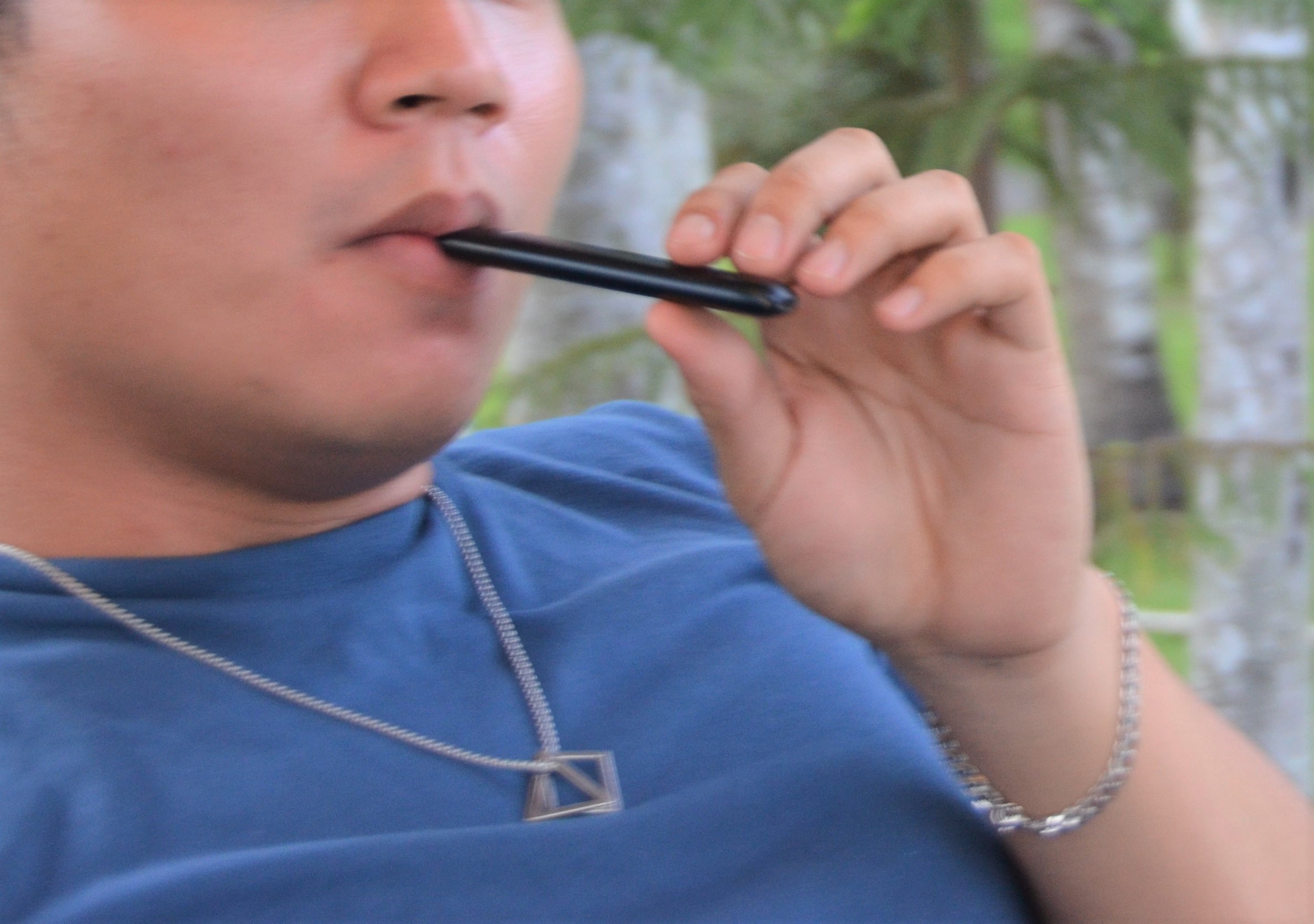Text and Photos by Henrylito D. Tacio
Nearly a third of the adult population in the country smoke, according to the Southeast Asia Tobacco Control Alliance in its 2014 report. This made the Philippines as the second country in the region of having the most numbers of smokers – after Indonesia.
“Nearly half of all Filipino men and 9% of women smoke and experts say the habit costs the economy nearly US$4 billion in healthcare and productivity loses every year,” said a recent Reuters dispatch.
Although Republic Act No. 9211, otherwise known as the “Tobacco Regulation Act of 2003,” prohibits any person under the age of 18 to purchase, selling, or smoking tobacco products, it has been found by a survey that children as young as five years old are already starting to smoke.
Most Filipinos prefer cigarettes compared with other tobacco products. In fact, there is a study that showed that an adult Filipino smoker consumes 838 cigarettes, equating to about 42 cigarette packs, per year.
Why so much ado about cigarette smoking? For one, smoking is responsible for 85% to 90% of lung cancers, medical experts claim. The more cigarettes a person smokes, the greater the chances of this fellow having lung cancer. As early as 1964, the US Surgeon General’s office issued the link between smoking and lung cancer.
“Lung cancer is almost exclusively found in smokers,” the Mayo Foundation for Medical Education and Research, based in Rochester, Minnesota, explains. “Men who smoke are 22 times more likely to develop lung cancer than men who don’t smoke. Women who smoke are 12 times more likely to develop lung cancer than women who don’t smoke.”
Cigarette and cigar smoke contains more than 40 cancer-causing chemicals or carcinogens. Among the most noted carcinogens are tar, cyanide, formaldehyde, methanol, ammonia, acetone, carbon monoxide, and nitrogen oxide.
The Geneva-based World Health Organization (WHO) estimates that 10 Filipinos die every hour due to cancer, stroke, lung, and heart diseases brought on by cigarette smoking.
So, you want to quit smoking? You can listen to the words of American humorist Mark Twain: “Giving up smoking is the easiest thing in the world. I know because I’ve done it thousands of times!”
Canadian film actor John Candy dismissed it also humorously. “Hey, I stopped smoking cigarettes,” he said. “Isn’t that something? I’m on to cigars now. I’m on to a five-year plan. I eliminate cigarettes, then I go to cigars, then I go to pipes, then I go to chewing tobacco, then I’m on to that nicotine gum.”
When it comes to smoking, it is usually those who quit that emerge winners. Dr. Willie T. Ong, the author of several health books and active consultant in cardiology at the Manila Doctors Hospital and Makati Medical Center, said a person who quits smoking would immediately get his rewards instantly.
Citing a study done by the American Lung Association, Dr. Ong said the health benefits of quitting will “begin just 20 minutes after your last cigarette. Your blood pressure and heart rate will decrease, and the oxygen content of your body will increase.”
After the first day of quitting, a previous smoker’s risk of suffering a heart attack will be reduced. On the second day, his nerve endings will start to heal, and his ability to smell and taste will improve. Between 2 weeks and three months after quitting, his blood circulation will improve. His cough will be lessened, and walking will become easier. Soon, his lung function will improve dramatically.


“By the time you reach 15 years of never touching a cigarette, your risk of dying will be the same as a non-smoker,” Dr. Ong pointed out. “This just goes to show that the ill effects of smoking are serious and deadly. Quit early and quit now. Quit while you are still young to obtain the full health benefits from quitting.”
For some people, quitting smoking is easier. But for most, it is easier said than done. Dr. Ong cited three factors responsible for the difficulty in quitting. “Knowing these factors will help you prepare yourself for the quitting process,” he said.
The factors were: (1) the number of cigarettes being smoked each day, (2) the people who smoke around the person who wants to quit, and (3) the real reason why the person smokes. “It could be due to peer pressure or for weight control,” Dr. Ong said of the latter.
“If you really want to quit smoking, you must identify the situations that trigger you to smoke, and do your best to avoid them,” Dr. Ong suggested.
Three out of four Filipino smokers want to quit smoking, studies show. But out of 15.9 million smokers, only about 640,000 were able to do so, according to the latest records released by the Philippine Statistics Authority.
Quitting smoking is indeed very difficult, particularly for recalcitrant smokers or those who have an obstinately uncooperative attitude towards smoking cessation. In the beginning, they may follow the smoking-cessation programs, but in the long run, they couldn’t really kick the habit.
As recalcitrant smokers – who are already addicted to nicotine – are hard to deal with, should they be disregarded in terms of long-term treatment? Dr. Rafael R. Castillo, a Fellow of the Philippine College of Physicians, Philippine College of Cardiology, and the European Society of Cardiology, doesn’t think so.
“Smokers may be rightfully considered as victims of an addictive disease, and those who cannot quit remain part of the health equation of every nation, just as much as the healthy non-smokers,” Dr. Castillo explains.
Since recalcitrant smokers cannot quit smoking immediately, one practical solution is to allow them to use tobacco alternatives like electronic cigarettes (e-cigarettes). It is called vaping.
“E-cigarettes are way less harmful than cigarettes and they can and do help smokers switch if they can quit,” Dr. David Abrams, New York University professor of social and behavioral sciences in the College of Global Public Health, told CBS This Morning Tony Dokoupil.
There was this research led by Roswell Park Comprehensive Cancer Center. Published in JAMA Network Open, it used data collected from 2014 to 2019 as part of a long-term study on tobacco use and how it affects the health of youth and adults in the United States.
Newswise.com reported on the outcome of the study: “When the researchers focused their analysis on a select group of 1,600 smokers who initially had no plans to quit and were not using e-cigarettes when the study began, they found that those who subsequently vaped daily experienced eightfold higher odds of quitting traditional cigarettes compared to those who didn’t use e-cigarettes at all.”
Dr. Andrew Hyland, chair of the health behavior at Roswell Park, was quoted as saying: “We found evidence that the use of e-cigarettes could have a positive impact on this very hard-to-reach group of recalcitrant smokers.”
While Dr. Castillo supports the Vape Bill – which becomes a law once it is signed by President Rodrigo R. Duterte – he is equally concerned about its potential for abuse, especially by young people.
“This is where effective legislation can provide the necessary control measures,” he pointed out. “Not only the youth should be protected but even older non-smoking adults, especially the women, who could be lured into the vice.”
Prof. Tikki Ella Pangestu, who used to be the director of WHO’s Department of Research Policy and Cooperation, echoed the same concern. “The main targets are smokers who want to quit,” he said.
Prof. Pangestu said that e-cigarettes and other alternative tobacco products should be promoted along with other options. “We need to see vape and heated tobacco products as a complement to other available options such as education, quit lines, counseling and education and nicotine replacement therapies (such as nicotine patches, gum, and nasal sprays among others),” he said.

